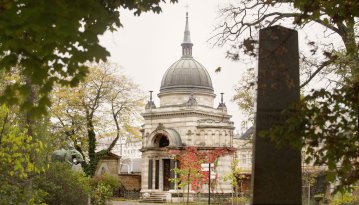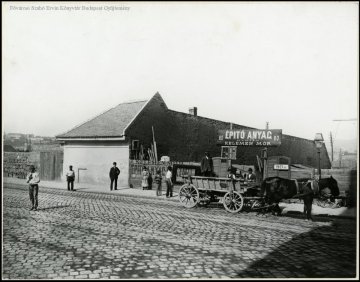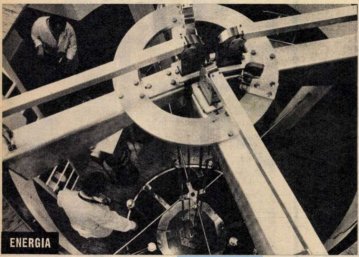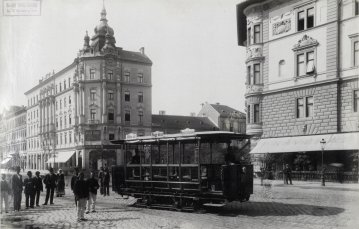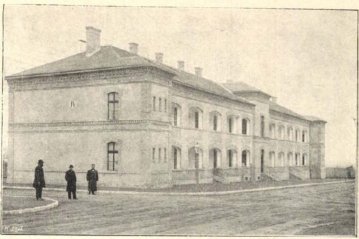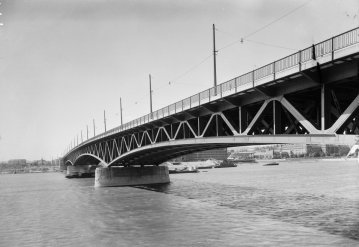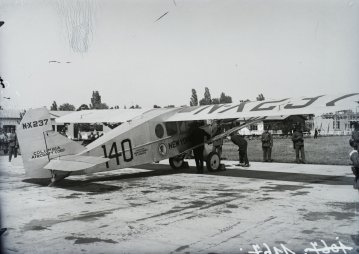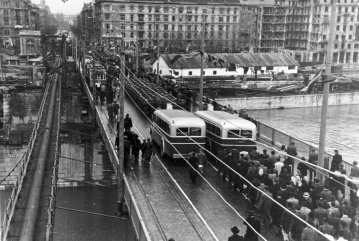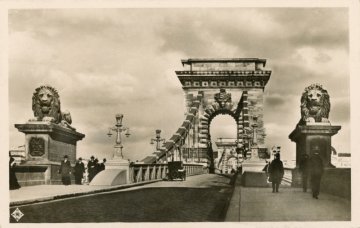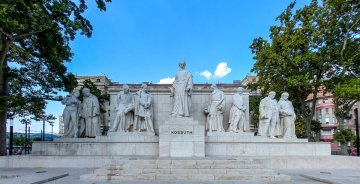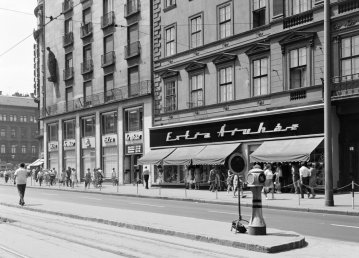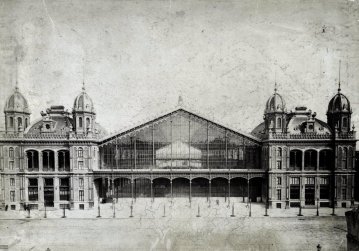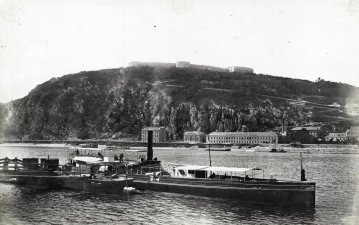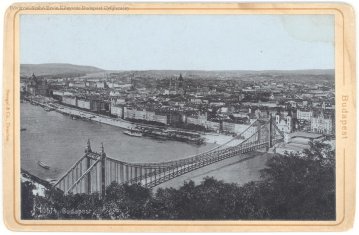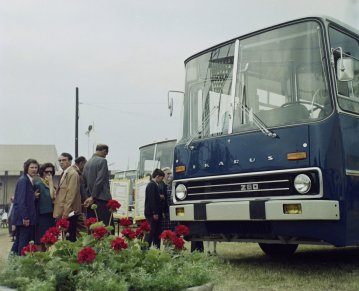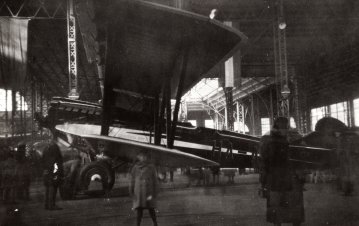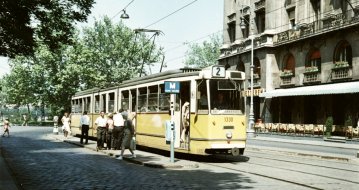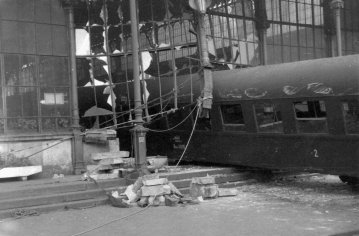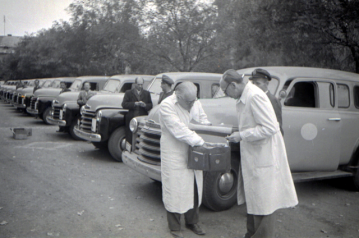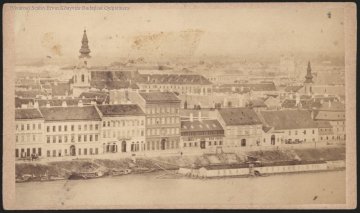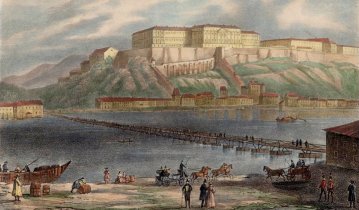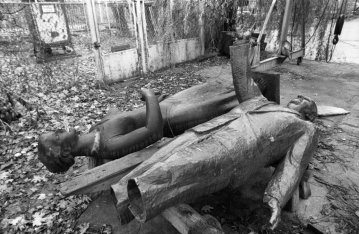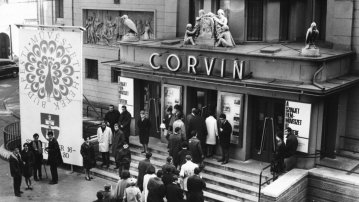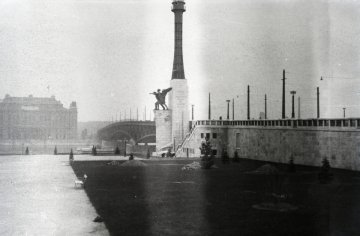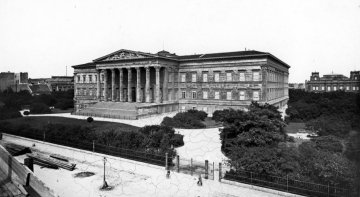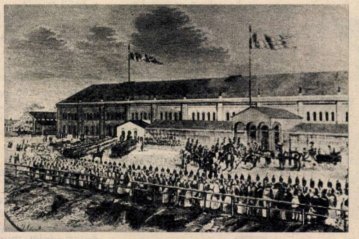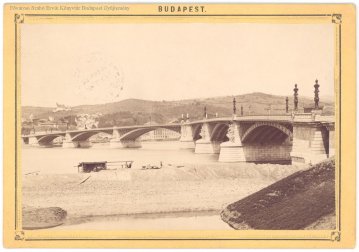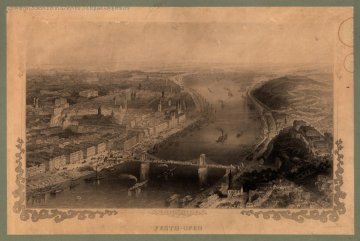Csaba Domonkos
Cikkek
The death of Ábrahám Ganz caused a shock - He was the godfather of 64 factory workers' children, who all inherited
December 14, 2022 at 12:00 PM
Ábrahám Ganz, the respected manufacturer from Buda, committed suicide 155 years ago, on 15 December 1867. The Ganz Factory, barely more than 20 years old, was at the peak of its success, and Ganz himself was a recognised citizen of Buda. With his death, he left a huge void, as he had no heir who could have taken over the family business. However, the factory survived and rose to incredible heights.
Constructions in Pest 150 years ago, before the unification of the city
December 10, 2022 at 2:00 PM
Pest and Buda already prepared for the unification of the cities in 1872, a large-scale urban development plan was adopted in Pest, and large investments were decided upon. However, other buildings also rose in the city. Take a look at how the city developed and how much did it cost to build a residential building.
The new experimental reactor in Csillebérc was commissioned fifty years ago
December 5, 2022 at 4:00 PM
On 5 December 1972, several physicists gathered in Budapest to celebrate the launch of a series of experiments that would last for 18 years. That is when the new reactor was inaugurated in Csillebérc, at the KFKI (Central Research Institute for Physics), where the physics research base of the Hungarian Academy of Sciences operated.
The first tram in Budapest - 135 years ago, the new vehicle appeared on the Outer Ring Road
November 30, 2022 at 10:00 AM
At the end of November 1887, the people of Budapest could see a miracle that had not been seen before. A carriage moved by itself, it was not pulled by a horse or a steam locomotive. Although this vehicle ran on rails, the cars were pulled by horses in the city and huge steam locomotives on the railways. The first tram had a lower pantograph and travelled at a speed of 10 kilometres per hour, and was accompanied by a police officer at Oktogon.
This was the Kis-Dzsumbuj - There was only one water tap per three apartments in the workers' flats built 125 years ago
November 29, 2022 at 9:00 AM
Thirty-six square metre flats with a room and kitchen, into which families of 4-5 people moved, there was only one water tap per three apartments in the corridor. This was provided by the Kén Street model workers' housing estate, handed over 125 years ago, in 1897. Compared to the housing conditions of the time, a new home here really represented progress, but the 96 flats handed over at that time remained a drop in the sea of misery. The microdistrict, later known as Kis-Dzsumbuj, was demolished a few years ago.
The rebuilt Petőfi Bridge was handed over 70 years ago
November 23, 2022 at 11:00 AM
When the predecessor of today's Petőfi Bridge was completed in 1937, there was hardly any traffic on it, as the Buda side was largely undeveloped. It was only given a short time as it was destroyed eight years later along with the other Danube crossings in Budapest. When the reconstruction of the bridges began, it was preceded by the restoration of several crossings, then it was finally handed over only in 1952. The new structure was three metres wider, and it also had a bicycle track, which was also important at the time because many people used it to go to work since cars were not allowed for private use.
The Trianon flight ban was lifted 100 years ago
November 21, 2022 at 11:00 AM
Aviation became available to civilians after World War I. New flights appeared one after another in the passenger and mail traffic of European countries, and more and more cities were connected by aeroplanes. However, Budapest could only join air traffic later, because the ban on flights that hit Hungary based on the Treaty of Trianon remained in force until 17 November 1922.
The exploded Margit Bridge: the half-reconstructed crossing was handed over 75 years ago
November 19, 2022 at 11:00 AM
The elegant arches of Margit Bridge are one of Budapest's jewels. This graceful and beautiful structure was also destroyed by the Germans in World War II. The bridge was rebuilt in two parts, the southern side was handed over 75 years ago: it was open to the public from 16 November 1947.
Wooden blocks, small stone blocks, asphalt - All about the roads of the Chain Bridge
November 15, 2022 at 10:00 AM
The asphalt track of the Chain Bridge has been completed in the past few days, and the load testing has already been carried out. This is the umpteenth roadway of the bridge, and it has probably changed the most in the last nearly 175 years.
Our everyday heat - Gas heating began to spread in Budapest 50 years ago
November 12, 2022 at 1:00 PM
Gas heating in Budapest was only built en masse in the 1970s, and after that, it became so popular that it was much easier to sell such apartments than those with electric or district heating. Due to the significant increase in energy prices, the way of heating apartments in the capital will likely have to be changed again. But take a look at what they used to light and how our ancestors heated in the past century and a half.
The speeches would have lasted four weeks if everyone had had the floor at the inauguration of the Kossuth Statue
November 6, 2022 at 1:30 PM
Sixty thousand people showed up at the inauguration of the Kossuth Statue that day, wreaths were laid by the country's top leaders, representatives of Hungarian settlements, the delegation of the United States and the city of Turin, representatives of countless foreign countries, but the Catholic Church was left out, and members of the Czechoslovak, Yugoslav, and Romanian embassy did not participate either. The monument was inaugurated 95 years ago today, on 6 November 1927, but the event was accompanied by huge controversies.
Bauxite concrete panic in Budapest - All affected houses were inspected 55 years ago
November 3, 2022 at 11:00 AM
In the 1960s, experts assumed with horror that a time bomb was ticking in the buildings of Budapest. A hotel ceiling crashed in, an apartment building began to crack incredibly fast right in front of an architecture professor. Bauxite concrete was responsible, so they searched and examined all the affected buildings in the capital. All this happened 55 years ago.
The railway station that was cut in two
October 29, 2022 at 11:00 AM
By the beginning of the 1870s, the first railway station in Pest - the predecessor of Nyugati (Western), then known as Pest Station Building - was no longer able to handle the ever-increasing railway traffic smoothly. The owner railway company started the expansion, but then it turned out that the building stood in the way of the planned Outer Ring Road. Therefore, the old hall was "halved" and a new railway station was built over its northern part. The Nyugati Railway Station, as it is known today, was handed over on 28 October 1877, i.e., 145 years ago.
Budapest acquired two hated buildings 125 years ago
October 21, 2022 at 10:00 AM
Several well-known symbols of oppression of Hungary and Budapest stood in the centre of the capital even in the decades after the Austro-Hungarian Compromise. One is the Citadella fortress built to intimidate the city after the defeat of the War of Independence on top of Gellért Hill, and the other is the huge New Building, also known as the prison of soldiers of the 1848 national army, with a bad memory, on the site of today's Szabadság Square. Budapest acquired these two military facilities in October 1897. The New Building was demolished in a short time, but they could not do anything with the Citadella for decades.
Frigyes Podmaniczky, who managed the development of Budapest, died 115 years ago
October 19, 2022 at 12:30 PM
He was one of the most important figures in the history of Budapest, who devoted all his energy to the development of the capital. Baron Frigyes Podmaniczky managed the Public Works Council for more than thirty years, essentially everything that we now consider Budapest's architectural and cultural heritage was built during his time. He played a decisive role not only in the development of the city but also in the theatre world. Perhaps the most popular person in Budapest, who worked for the city until his death, died 115 years ago.
Farewell to the Ikarus 200 – They defined the streetscape of Budapest for 50 years
October 18, 2022 at 9:00 AM
Budapest will soon say goodbye to a legend that defined the image of the city for decades. BKV is preparing to withdraw the last pieces of a bus family that was perhaps the most important bus type in the world at one time. The Ikarus 200s are leaving after fifty years.
Miracle aeroplanes in the Industrial Hall - The pilot of the Justice for Hungary plane crossed the ocean but crashed in Rome
October 15, 2022 at 11:00 AM
Those who bought tickets to the György Endresz Aviation Exhibition 90 years ago were able to get an insight into the real world of aviation, because not only could they see the planes on the ground, but the lucky ones could also win flights. The exhibition, which opened on 15 October 1932, also commemorated the unfortunate Hungarian transatlantic pilot, György Endresz.
Industrial articulated trams in the capital: Hungarian tram production ended with them
October 11, 2022 at 11:00 AM
Budapest is the city of trams. The capital would be unimaginable without the long yellow vehicles. An incredible number of types have worn the rails over the past 140 years, but few vehicles have been as defining as the industrial articulated tram.
A railway carriage got out of control and ended up on the Outer Ring Road
October 4, 2022 at 10:30 AM
Sixty years ago, on 4 October 1962, a railway carriage tore through the buffer stop of the main hall of the Nyugati (Western) Railway Station, breaking through the glass wall and running onto the Outer Ring Road. The accident was caused by human error, but thanks to the presence of mind of a railwayman, there was no mass catastrophe.
It was handed over 85 years ago, but the widened Margit Bridge exploded 7 years later
October 1, 2022 at 11:30 AM
Margit Bridge was completed as a real luxury investment in the 1870s, under the direction of a French engineer. But traffic at Budapest's second Danube crossing remained very low until the end of the century. However, at the beginning of the 1930s, it already proved to be narrow, so it was decided to rebuild and widen it. The inauguration was held 85 years ago, on 1 October 1937.
The first mandatory vaccination against tuberculosis was administered in Budapest 75 years ago - Morbus Hungaricus has still not disappeared
September 28, 2022 at 9:00 AM
Lung trouble, tubercular disease, morbus hungaricus - these are all the names of tuberculosis, which was an almost incurable and largely fatal disease for a long time. It is no coincidence that this disease was also known as morbus hungaricus, as it was very common in Hungary. Although it has not yet been completely defeated, there is a vaccine against it, which has been mandatory in Hungary for decades. It was introduced in Budapest at the end of September 1947, first in the 13th District.
The last major cholera epidemic
September 23, 2022 at 11:00 AM
The last major cholera epidemic broke out 150 years ago and reached Pest and Buda in the fall of 1872. They tried many things to fight it, but still, thousands of people died from the disease. With the end of the epidemic, significant health improvements began in the capital.
The city's development was helped by the pontoon bridge built 255 years ago between Pest and Buda
September 22, 2022 at 1:00 PM
For nearly 100 years, a pontoon bridge built 255 years ago provided a way for traffic between Pest and Buda. But the pontoon bridge, used since 1767, was moved twenty years later because a new city quarter was planned to be built north of the Pest city walls. The bridge served traffic in its new location until the opening of the Chain Bridge, i.e. until the end of 1849.
Monuments of the socialist era were dismantled 30 years ago
September 16, 2022 at 2:30 PM
Thirty years ago, the removal of statues associated with the previous regime from Budapest's public spaces began. The monuments erected during the socialist era, including the statues of Marx and Engels, Lenin, and Béla Kun, were transported to the sculpture park created in the 22nd District, where they can still be seen in an open-air exhibition ever since.
The wide-screen cinema in Pest is 65 years old: Corvin presented a Soviet film
September 12, 2022 at 2:00 PM
Today, it is natural that the screen in the cinema is huge, it can be up to 24 metres wide and 18 metres high, and you can watch movies with surround sound or in 3D. In the 1950s, however, it was different in Hungary, the screens in the cinema were only a few metres wide. The first wide-screen cinema was Corvin, damaged during the revolution and rebuilt in 1957.
Horthy Miklós Bridge was built eighty-five years ago - After the post-war reconstruction, it became Petőfi Bridge
September 10, 2022 at 10:00 AM
The Petőfi Bridge is perhaps the least known bridge in inner city Budapest. It is not a spectacular creation, it is not photographed by visiting tourists, but still, from a traffic point of view, it is one of the most important crossings in the city. The bridge was handed over 85 years ago, on 12 September 1937, back then it was called Horthy Miklós Bridge.
He was called the cultural pope of dualism - Ferenc Pulszky died 125 years ago
September 9, 2022 at 10:30 AM
Ferenc Pulszky was the director of the Hungarian National Museum for a quarter of a century, and there he assisted the founding of other museums created during that period. But Ferenc Pulszky was much more than perhaps the most significant director of the Hungarian National Museum, he was the "culture pope" of dualism.
The railway line from Pest to Szolnok was opened 175 years ago
September 2, 2022 at 9:00 AM
In addition to travel from Pest to Vác by rail, it was made possible to reach Szolnok, as the new line was opened 175 years ago. This date is less well-known than 1846, which is known incorrectly as the opening of the first Hungarian railway but "only" the first steam-hauled railway line was opened then. The opening of the Szolnok line on 1 September 1847 was at least as important because of this, Pest's central role in trade strengthened.
The construction of the Margaret Bridge began before the city unification - piling began 150 years ago
August 1, 2022 at 9:00 AM
The Margaret Bridge was the second bridge between Pest and Buda, the construction of which began 150 years ago, on 1 August 1872, even before the unification of the city. Many people criticized the designated location, but the government decided that the new Danube crossing should connect to the planned Outer Ring Road and through it to the Sugárút [Avenue]. The bridge was designed by a French engineer and built by the French company he founded, and was completed in four years.
When the Turkish Sultan visited Pest and Buda
July 31, 2022 at 10:30 AM
The Turkish Sultan arrived in Pest-Buda in the summer of 1867. On the occasion of the one-day visit, the people of Pest organised a folk ceremony, welcoming the guest with 72 cannon shots. Pasha Abdul-Aziz stayed here for only a few hours, visited the the royal palace in the Castle, and his program even included a carriage ride in Pest, and then left in the same way as he arrived, by boat.

